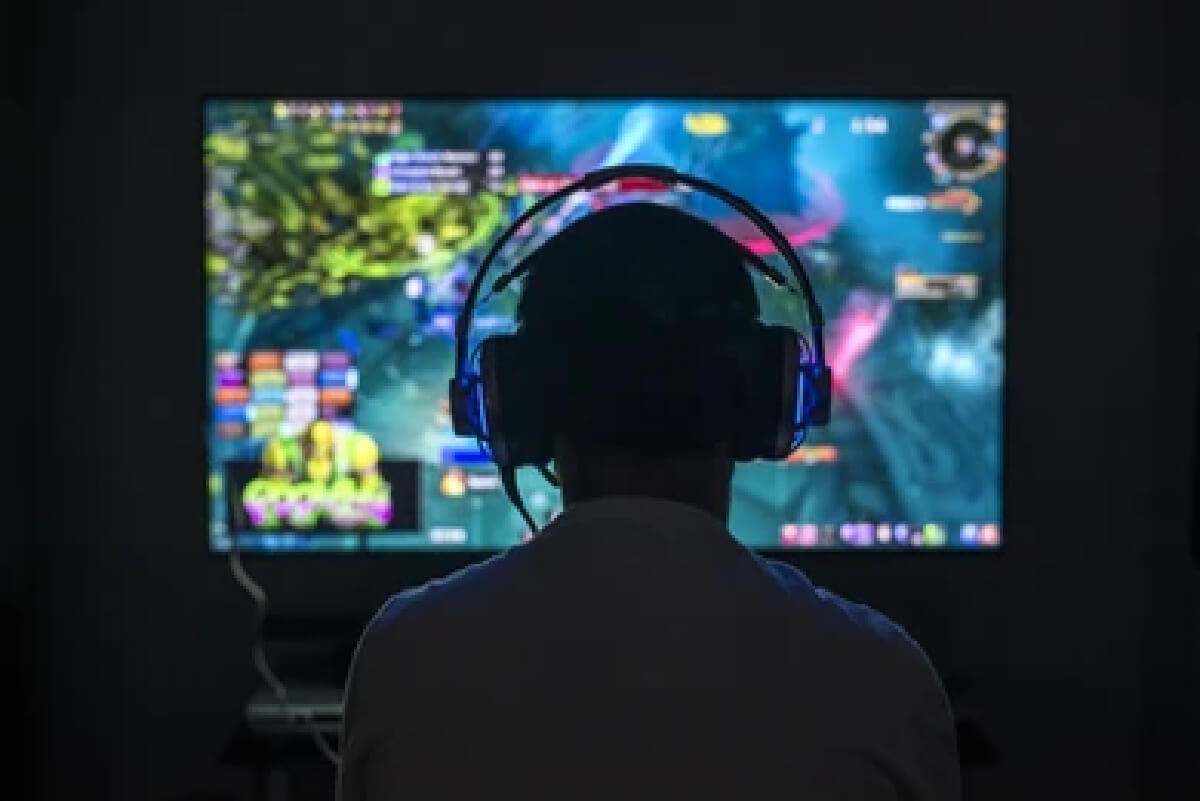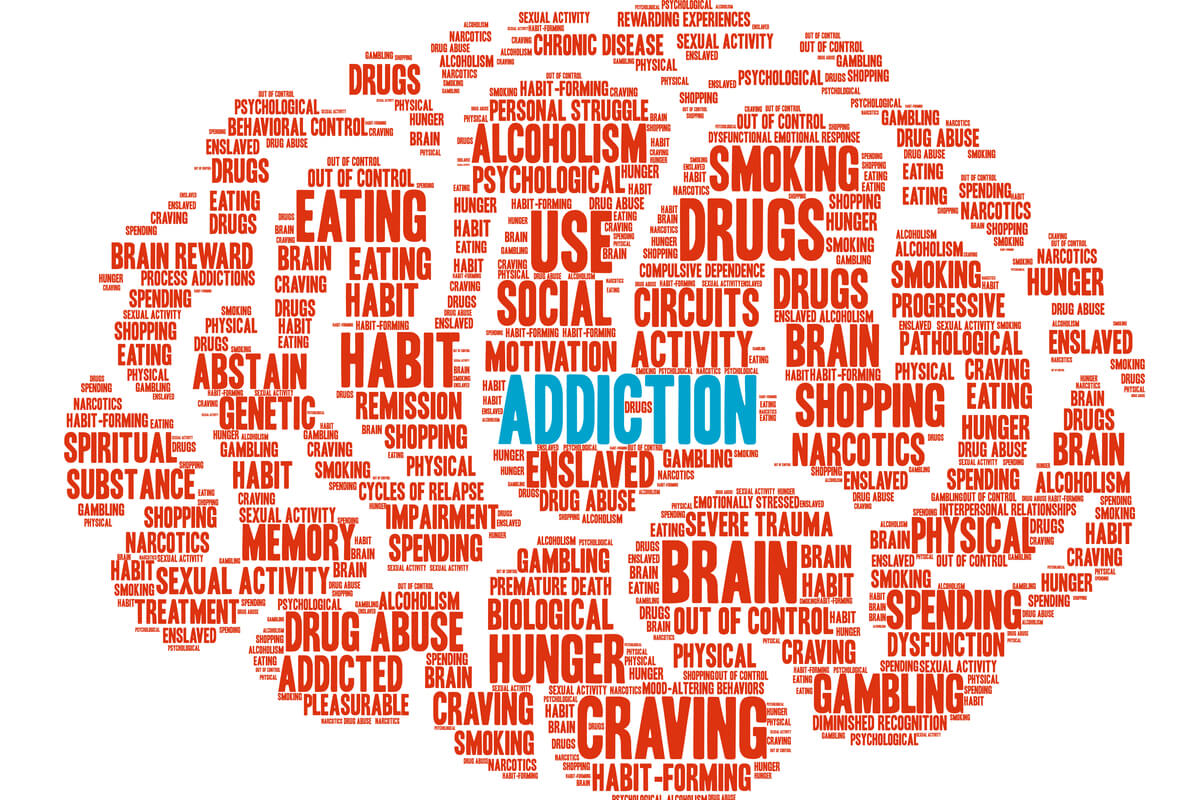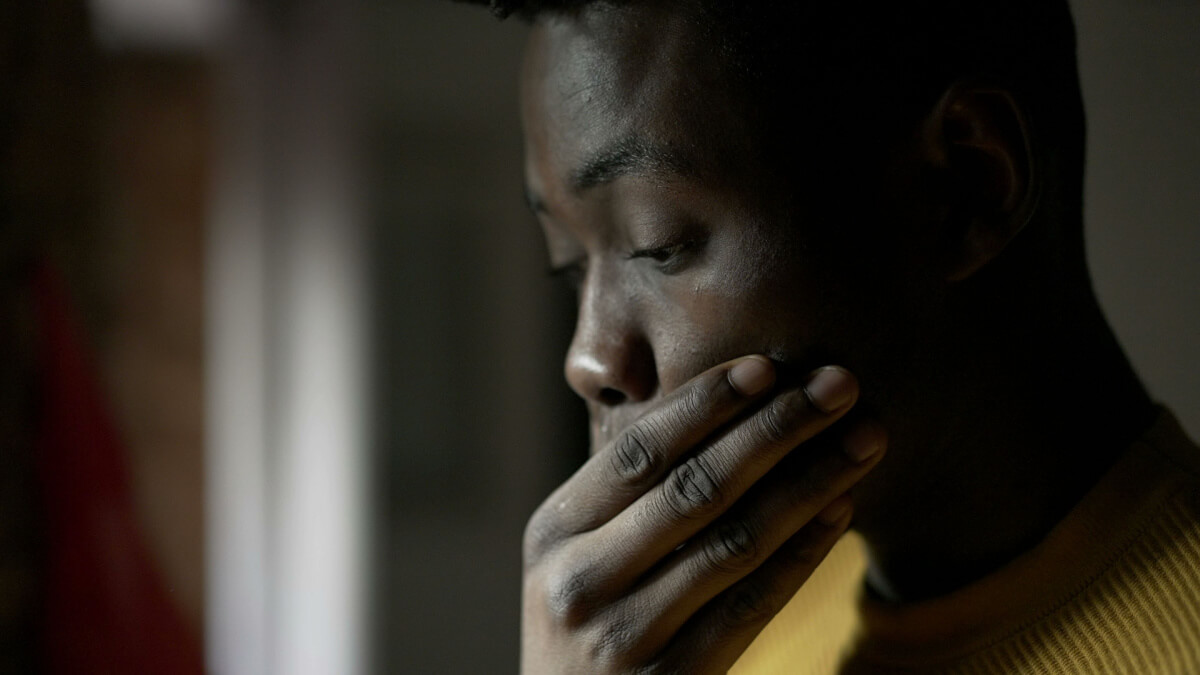
Gaming addiction refers to compulsive gaming activity. People with this disorder prioritize gaming above all other activities, including eating, sleeping, and spending time with friends. They may not even enjoy the games they play, but they may feel compelled to keep playing.
To be diagnosed with a gaming addiction, an unhealthy relationship with games must be in place for at least 12 months.[1] But plenty of people show signs and symptoms earlier.
Knowing how to spot trouble could mean offering help before the gaming problem becomes serious.
When Does Gaming Become an Addiction?
Gaming becomes an addiction when it begins to cause damage in your life, such as your relationships, performance at work or school, finances or health. If gaming begins to have a negative effect on any aspect of your life, it’s often a sign that it is a problem.
Like most addictions, gaming addiction takes time to develop. You don’t simply pick up a game controller and become instantly addicted.
Generally, the path to gaming addiction involves a gradual ramp-up of the time spent gaming. It becomes more and more important to the individual and takes up an increasing amount of time. As the addiction takes hold, you’ll begin to spend more and more time gaming to the exclusion of other things in your life.
For gaming addiction to be diagnosed, it would have to be severely impacting a person’s quality of life, and it would usually need to have been present for at least a year.[1]
Signs & Symptoms of Gaming Addiction
Many people play online games. They blow off steam, connect with other players, and spend a few happy minutes conquering a challenge or two. The vast majority of people are like this, and can turn off their games and stop playing for days or even weeks at a time. People with gaming addiction are different.
Someone struggling with a gaming addiction may do the following:[2]
- Feel compelled to play: They think about the game constantly, and they feel irritable when they can’t start or finish a contest.
- Hide their gaming: They may lie about how much they play, or they may hop on at unusual times, such as in the middle of the night.
- Play instead of living: They forget to wash up, eat, or talk to friends. They skip school or work to play. And they give up activities they once enjoyed to free up time to play games.
Some people with gaming addictions talk openly about their scores, progress, and goals. But others will try to hide how often they play from friends/family.
Gaming Addiction Risk Factors
Researchers say between 1.7% and 10% of the population struggle to control their gaming habits.[3] While each person is different, they share some common characteristics.
The phenomenon of gaming addiction is well known: Most gaming companies prey on this proclivity by hiring behavioral psychologists, tasked with making the environments compelling and more addictive.[4] They use marketing ploys, like unlocking levels for repeat players, that keep people logged on. People with a gaming addiction are especially vulnerable to these tactics.
Research suggests that people with poor social skills, a distressing home life, or other mental health conditions such as depression/anxiety are especially prone to developing a gaming addiction. They appreciate the validation and rewards contained in their games, and they feel in control of what happens when they’re playing in a way they might not feel about the reality of their own lives.[5]
People with poor impulse control may also be prone to developing an unhealthy relationship with gaming.[6] They can’t resist the urge to play one more round or hit one more level, so they keep playing when others would quit. The longer they play, the more rewarding the game becomes.
Gaming & Mental Health
Gaming addictions develop slowly, following a trajectory very similar to other addictions such as substance misuse.
Each time the player scores a point, unlocks rewards, or otherwise does well, the brain reacts with increases in dopamine. The player gets a boost of pleasure and a sense of goodwill, similar to the biochemical reaction experienced by someone taking a substance.
Some gamers come to believe that real life is no substitute for the environment they enter when they play.[7] They may feel depressed because of it, creating a vicious cycle of more time gaming and less time being part of the “real” world.
People with gaming addiction may have high levels of anxiety, depression, insomnia and other mental health conditions. The more they play, the less capable they are of engaging with people in real life.[8] As their isolation increases, their mental health can deteriorate.
Gaming & Your Physical Health
The human body isn’t designed to play video games around the clock. Gamers may invest heavily in ergonomic equipment and performance solutions, but they may still have severe medical issues due to their habits.
Gamers often struggle with the following:[9]
- Vision issues: Staring at a screen can lead to headaches, eye strain, and other ocular concerns.
- Musculoskeletal problems: Wrist and hand pain is common, but people may also have back and neck discomfort.
- Weight gain: People who game for many hours a day are very sedentary, leading to weight gain and obesity and deterioration of cardiovascular health.
How Gaming Addictions Are Treated
There are no medications used to treat gaming addiction. Instead, the treatment is usually behavioral interventions. People with gaming addictions sometimes benefit from treatment programs. It’s very difficult for them to quit playing without help, but a treatment team can offer guidance. A typical program has these three components:
1. Digital Detox
People stop playing games of any sort to allow their brain chemistry to stabilize.[7] Some people move through this process quickly, but some need to stay offline for months.
2. Therapy
Teams use cognitive behavioral therapy (CBT) to help people recognize their gaming triggers and deal with them appropriately. For example, people with gaming addictions may struggle when they walk by internet cafes. Therapists can help them use techniques like deep breathing to resist the urge to enter and play.
3. Medications
While there are no medications specifically for gaming addictions, some people benefit from medication treatment for other conditions that may contribute to their gaming, such as depression and anxiety. There are lots of medications for these related mental health conditions.
Gaming Addiction Resources
These three organizations can help community members in their recovery from a gaming addiction:
- Game Quitters: Read tips on how to quit gaming, learn more about activities you could do instead, and join an online support group to connect with other gamers.
- Online Gamers Anonymous: Join an online support group filled with other gamers and get support to help you quit. Pay no fees, and as you get better, learn how to support others too.
- Qustodio: This tool was originally developed to help parents limit how much time their kids spend online, but plenty of adults use it to stay focused too. The tool is free and works in most operating environments. If you’re hoping to avoid relapse urges, this could be a useful resource.
Preventing Gaming Addiction
If you feel you or a loved one are spending excessive time gaming and are concerned, here are some strategies you can try:
1. Set Time Limits
Parents should set time limits on online gaming. Determine how much time your child or teen can play and set clear rules. [10] If you are an adult, try to set your own time limits. You may not even realize how many hours you are spending gaming: a good place to start is keeping track of how much time you are actually spending by setting a timer or keeping a log of your hours.
2. Interact in Person
Spend time doing in-person activities. Meet a friend for coffee. Join a club sports team or a gym. Join a hobby group. Make sure you have time spent each day or week interacting in person with others and getting out of the house.
3. Reach out to others
If you are worried about your own gaming time or the gaming of a loved one, say something! Communication is key, and might be the first step to getting help for a gaming addiction.

Reviewed By Peter Manza, PhD
Peter Manza, PhD received his BA in Psychology and Biology from the University of Rochester and his PhD in Integrative Neuroscience at Stony Brook University. He is currently working as a research scientist in Washington, DC. His research focuses on the role ... Read More
- Addictive Behaviours: Gaming Disorder. World Health Organization. https://www.who.int/news-room/questions-and-answers/item/addictive-behaviours-gaming-disorder. October 2020. Accessed August 2022.
- Gaming Addiction. Hampshire Child and Adolescent Mental Health Service. https://hampshirecamhs.nhs.uk/issue/gaming-addiction/. Accessed August 2022.
- Video Game Addiction and Emotional States: Possible Confusion Between Pleasure and Happiness? Frontiers in Psychology. https://www.frontiersin.org/articles/10.3389/fpsyg.2019.02894/full. January 2020. Accessed August 2022.
- Video Game Addiction Is On the Rise. Here's What It Looks Like. Discover. https://www.discovermagazine.com/health/video-game-addiction-is-on-the-rise-heres-what-it-looks-like. February 2022. Accessed August 2022.
- Internet Gaming Addiction. Reasons, Diagnosis, Prevention, and Treatment. Encephalos. https://citeseerx.ist.psu.edu/viewdoc/download?doi=10.1.1.1048.5439&rep=rep1&type=pdf. 2014. Accessed August 2022.
- Internet Gaming Addiction: The Case of Massively Multiplayer Online Role-Playing Games. Textbook of Addiction Treatment: International Perspectives. https://www.researchgate.net/profile/Mark-Griffiths-17/publication/271510904_Internet_Gaming_Addiction_The_Case_of_Massively_Multiplayer_Online_Role-Playing_Games/links/563a293508ae405111a57de9/Internet-Gaming-Addiction-The-Case-of-Massively-Multiplayer-Online-Role-Playing-Games.pdf. 2015. Accessed August 2022.
- Internet Gaming Disorder: A Real Mental Health Issue on the Rise in Adolescents and Young Adults. Counseling Today. https://ct.counseling.org/2021/09/internet-gaming-disorder-a-real-mental-health-issue-on-the-rise-in-adolescents-and-young-adults/. September 2021. Accessed August 2022.
- Effect of Addiction to Computer Games on Physical and Mental Health of Female and Male Students of Guidance School in City of Isfahan. Addiction and Health. https://www.ncbi.nlm.nih.gov/pmc/articles/PMC3905489/. Accessed August 2022.
- Gaming Disorder and Effects of Gaming on Health: An Overview. Journal of Addiction Medicine and Therapeutic Science. https://www.peertechzpublications.com/articles/doi10.17352-2455-3484.000025-jamts.php. October 2018. Accessed August 2022.
- Gaming Addiction: When Going Online Goes Off-Kilter. Contemporary Pediatrics. https://go.gale.com/ps/i.do?id=GALE%7CA438688092&sid=googleScholar&v=2.1&it=r&linkaccess=abs&issn=87500507&p=AONE&sw=w&userGroupName=mlin_oweb. November 2015. Accessed April 2023.
Download Our Free Program Guide
Learn about our program, its effectiveness and what to expect
Related articles
Imagine what’s possible on the other side of opioid use disorder.
Our science-backed approach boasts 95% of patients reporting no withdrawal symptoms at 7 days. We can help you achieve easier days and a happier future.








